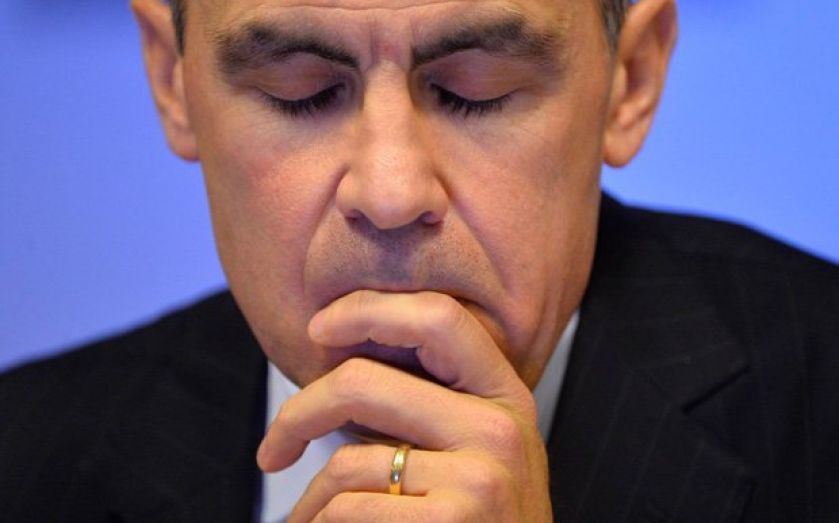Carney hails recovery as unemployment falls

INTEREST rates could rise as soon as early 2015 – a year earlier than previously planned – thanks to plunging unemployment and a strong start to the recovery, the Bank of England said yesterday.
Just three months ago the Bank thought it would take until 2016 before unemployment falls below seven per cent, its threshold to start considering a rate rise.
But it has been taken by surprise by the strength of the economy and now thinks that the seven per cent target could be reached in the first half of 2015.
Bank of England governor Mark Carney was upbeat on the data but said interest rates will not rise until the recovery is in full flow.
“The recovery has finally taken hold. For the first time in a long time you don’t have to be an optimist to see the glass as half full,” he said.
“It is welcome that the economy is growing again, but a return to growth is not yet a return to normality. Nearly 1m more people are out of work than in the years before the financial crisis.”

Employment data out yesterday showed an extra 177,000 jobs were created in the three months to September, taking the total number of people in work in the UK to 29.95m.
Unemployment dropped 48,000 to 2.47m, cutting the jobless rate from 7.8 per cent to 7.6 per cent, closer to the Bank of England’s threshold.
And the number claiming jobseekers’ allowance plunged 41,700 to 1.3m – giving a 3.1 per cent fall that is the fastest drop since 1998.
However the jobs market has not yet recovered, as inflation has now outstripped wages for the past four years.
Average pay rose 0.7 per cent compared with the same period of 2012.
Private pay increased by 1.1 per cent, while public sector pay fell 0.4 per cent.
At the same time inflation came in at 2.7 per cent in the year to September, further eating away at consumers’ spending power.
Analysts criticised the move, arguing changing forecasts so rapidly can muddle the Bank’s message.
“These revisions have created some confusion about the future path of monetary policy,” said Nida Ali from the Ernst and Young Item Club. “MPC members were at pains to highlight the fall in unemployment will not trigger an automatic rate rise, under the pretext that the economy has still not returned to normal. But financial markets are unlikely to be convinced and these forecasts suggest that market interest rates will probably increase.”
Meanwhile the Bank of England said the housing market is supporting the recovery so far, playing down worries the market faces a bubble.
Its Inflation Report notes that increasing market activity boost consumer spending as households buy goods to fill their new homes, while rising prices enable them to borrow more and spend more. And although prices are soaring in London, Carney argued he must look to the rest of the UK where rises are more modest.
“We don’t just make policy for inside the Circle Line, but for the whole country,” he said.
And Carney maintained the Financial Policy Committee will remain “vigilant” in watching for any bubble which could endanger banks.